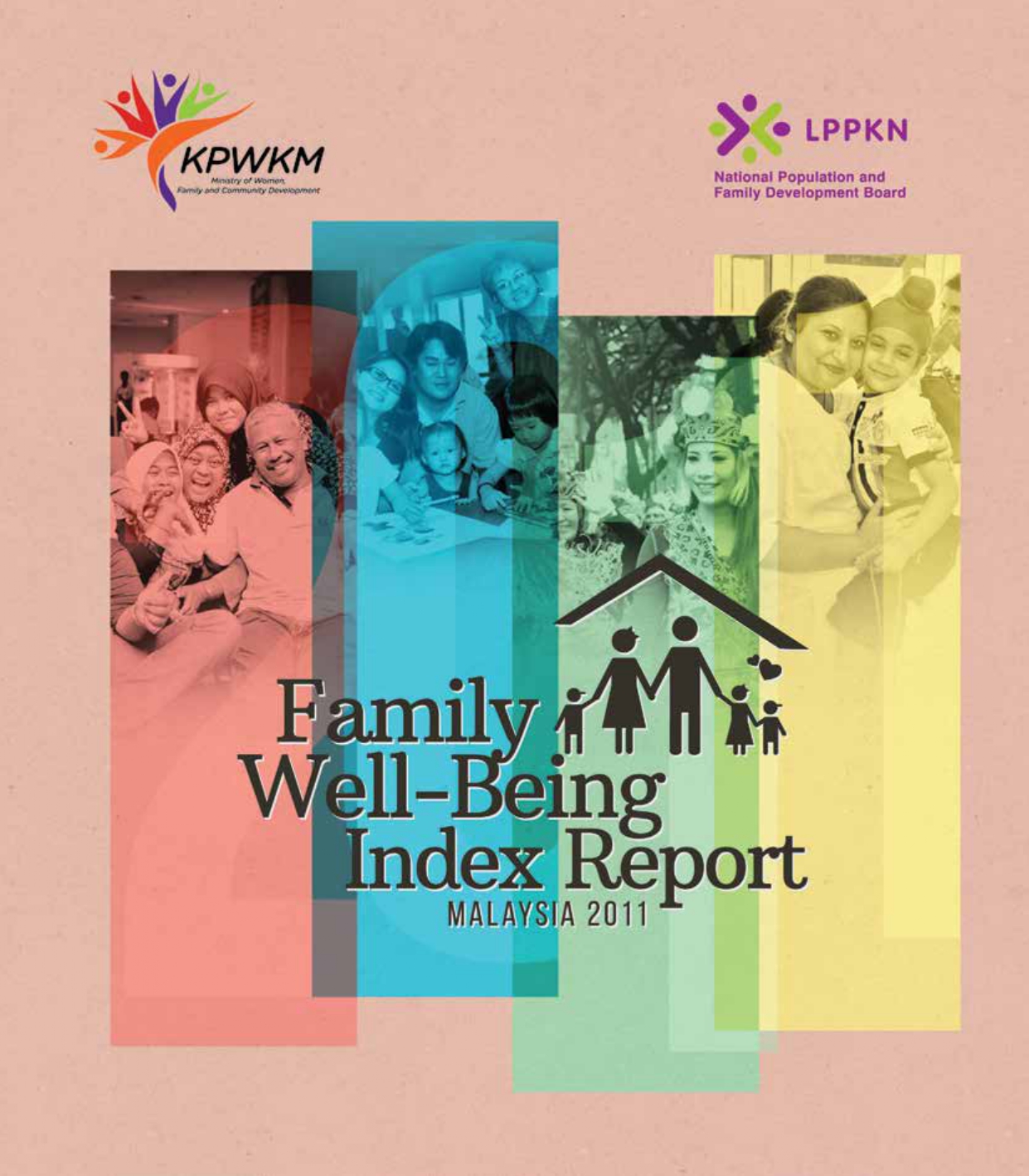Malaysia Population Research Hub

Family Well-Being Index Report Malaysia 2011
Author: National Population and Family Development Board Category: Report3 Publisher: National Population and Family Development Board Publish: 2015 Pages: 82 Language: EnglishIn the past few decades, Malaysia has and is still undergoing a process of rapid social and economic development. This is a result of policies implemented by the government such as the New Development Policy (1991-2000), National Vision Policy (2001-2010) and Government Transformation Programme (2010-2020) which all aim to transform Malaysia into a developed and competitive country. However, the processes has imposed increased demands on the family institution because of the responsibilities and the challenges faced by the family itself.
The family institution must be strengthened to offset the rapid process of social and economic development. This is important because family is the basic social unit which prepares and supplies human capital resources for national development. Given the importance of family well-being to the future of the country, a scientific study needs to be conducted to measure the level of well-being of families in Malaysia. Measuring family well-being is crucial as it can indirectly measure the impact of the implementation of national social and economic development policies on families and the extent to which the implemented policies and programmes are successful or otherwise. Hence, this study has identified suitable indicators that can provide information about the well-being of families in Malaysia. Subsequently, based on the identified indicators, a Family Well-Being Index (FWI) was developed to measure the current well-being of the family as well as to be used in policy formulation, planning for implementation of future research, the development of new programmes and services, and expansion of the existing programmes.
